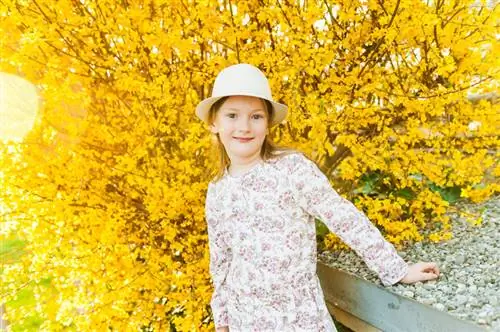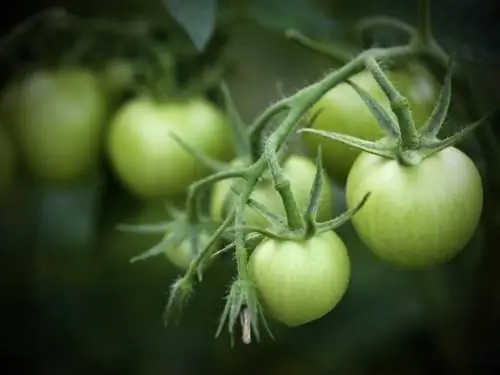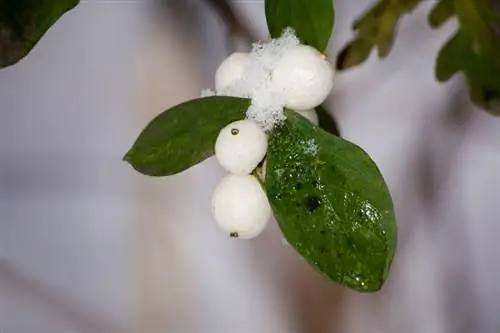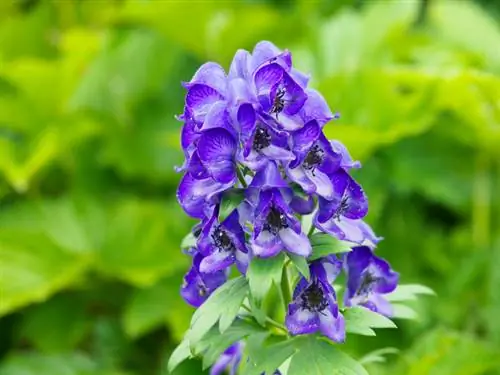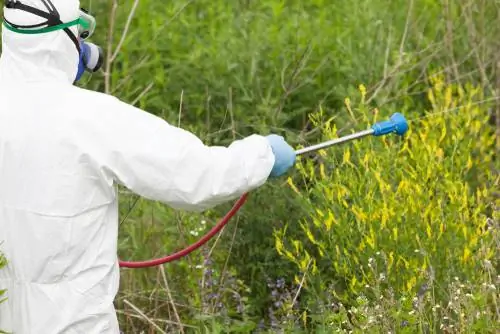- Author admin leonars@hobbygardeners.com.
- Public 2023-12-16 16:46.
- Last modified 2025-01-23 11:20.
People often warn against planting forsythia because they are poisonous. That is only partly true. The pretty ornamental shrubs do contain small amounts of incompatible substances. However, to cause serious damage, humans would have to consume larger quantities of it.
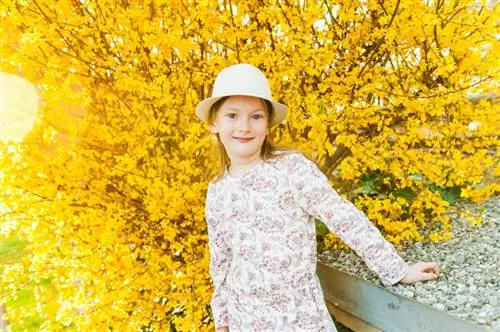
Are forsythia poisonous to people and pets?
Are forsythia poisonous to people and pets? Forsythia contains small amounts of saponins, glycosides and essential oils in leaves, seeds and flowers. However, they are only slightly toxic and can cause abdominal pain, nausea and diarrhea if consumed in large quantities. Pets are similarly unaffected.
What toxins are contained in forsythia?
All parts of the plant contain toxins:
- Leaves: saponins, glycosides
- Seeds: saponins, glycosides
- Flowers: glycosides, essential oils
What symptoms can occur?
It is not really dangerous if some of the forsythia plant parts accidentally enter the human system. You would have to consume large amounts of the plant to become seriously ill.
Consequences of consuming forsythia can be:
- Stomachache
- Nausea
- Diarrhea
Treat poisoning by giving the affected person plenty of water or herbal tea to drink. This dilutes the concentration of the ingredients.
Wash your hands after care
After caring for the bushes, you should wash your hands thoroughly to remove any substances that may have stuck on them.
Sensitive people should only care for forsythia in the garden with gloves (€9.00 on Amazon).
If possible, avoid touching your face with your hands during care work.
Keep small children away from forsythia
With small children, you should be careful and prevent them from using fallen flowers, cut branches or other parts of plants to play with.
If you have the feeling that your child has eaten forsythia flowers or leaves, to be on the safe side, tell your pediatrician.
Tips & Tricks
Forsythia is also only slightly toxic to pets such as dogs and cats. When cutting, make sure that animals do not play with or nibble on the cut bushes.

